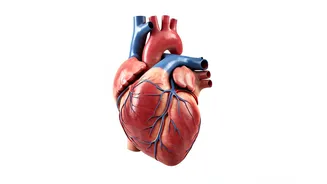Heart-Friendly Eating Habits
Nourishing your heart is a delicious endeavor. Embrace a heart-friendly diet, which centers around whole, unprocessed foods. Load up on fruits, vegetables,
and whole grains, ensuring a vibrant array of nutrients. Lean proteins, like fish and poultry, should take center stage, while limiting red meat and processed foods. Healthy fats from sources like avocados and olive oil are vital, but moderation is key. Portion control plays a critical role too. Remember, creating tasty meals that your heart will appreciate can be easier than you might think; simple substitutions can make a world of difference!
Stay Physically Active
Regular physical activity is a cornerstone of a healthy heart. Aim for at least 150 minutes of moderate-intensity exercise, or 75 minutes of vigorous-intensity exercise each week. This could include activities like brisk walking, jogging, swimming, or cycling. Find activities you enjoy to keep you motivated and committed to regular workouts. Incorporate exercises that work different muscle groups to enhance overall fitness. The more consistently you get your body moving, the stronger your heart becomes, making it more efficient and reducing the risk of heart disease.
Prioritize Sleep & Rest
Quality sleep and effective stress management are intrinsically connected to cardiovascular health. Ensure you're getting 7-9 hours of quality sleep each night. Create a relaxing bedtime routine to prepare your mind and body for sleep, and avoid caffeine and alcohol before bed. Implement stress-reducing techniques such as meditation, yoga, or deep breathing exercises. Engage in activities you find enjoyable. By managing stress levels and ensuring adequate rest, you're giving your heart the time it needs to recover and function optimally, thus reducing your risk of heart problems.
Limit Alcohol Consumption
Moderation is key when it comes to alcohol consumption. If you choose to drink, do so in moderation: up to one drink per day for women and up to two drinks per day for men. Excessive alcohol intake can raise blood pressure, contribute to weight gain, and elevate triglyceride levels, all of which negatively impact heart health. Consider the impact of alcohol on your health, and think of your options to reduce your intake. Choosing to limit alcohol can have a positive effect. Additionally, discuss your alcohol consumption habits with your healthcare provider to receive personalized advice tailored to your health profile.
Avoid Smoking Habits
Smoking is one of the most detrimental habits for your heart. It damages blood vessels, increases blood pressure, and raises the risk of blood clots, all of which elevate your risk of heart attack and stroke. If you smoke, quitting is one of the best things you can do for your heart. Seek support from healthcare professionals, utilize nicotine replacement therapy, or join a support group. Quitting smoking provides a huge benefit, and the sooner you quit, the better it is for your heart. Your heart will thank you for making the decision to live a smoke-free life.
Monitor Health Metrics Regularly
Regular health check-ups and monitoring key health metrics are vital for maintaining a healthy heart. Have your blood pressure, cholesterol levels, and blood sugar checked regularly by your doctor. Being proactive allows you to identify potential issues early on, when they are easier to manage. Discuss your family history of heart disease with your healthcare provider, to assess your individual risk factors. Consistent monitoring, together with adopting the above-mentioned lifestyle changes, can significantly help to prevent serious heart problems and keep your heart strong and healthy for years to come.




















